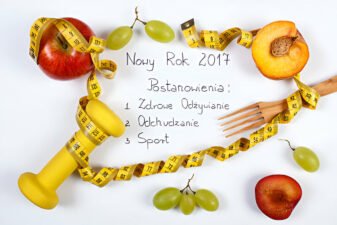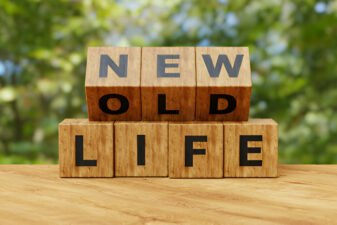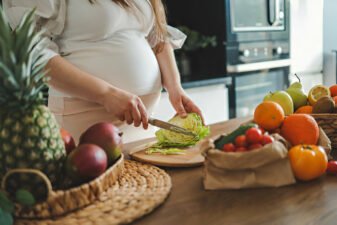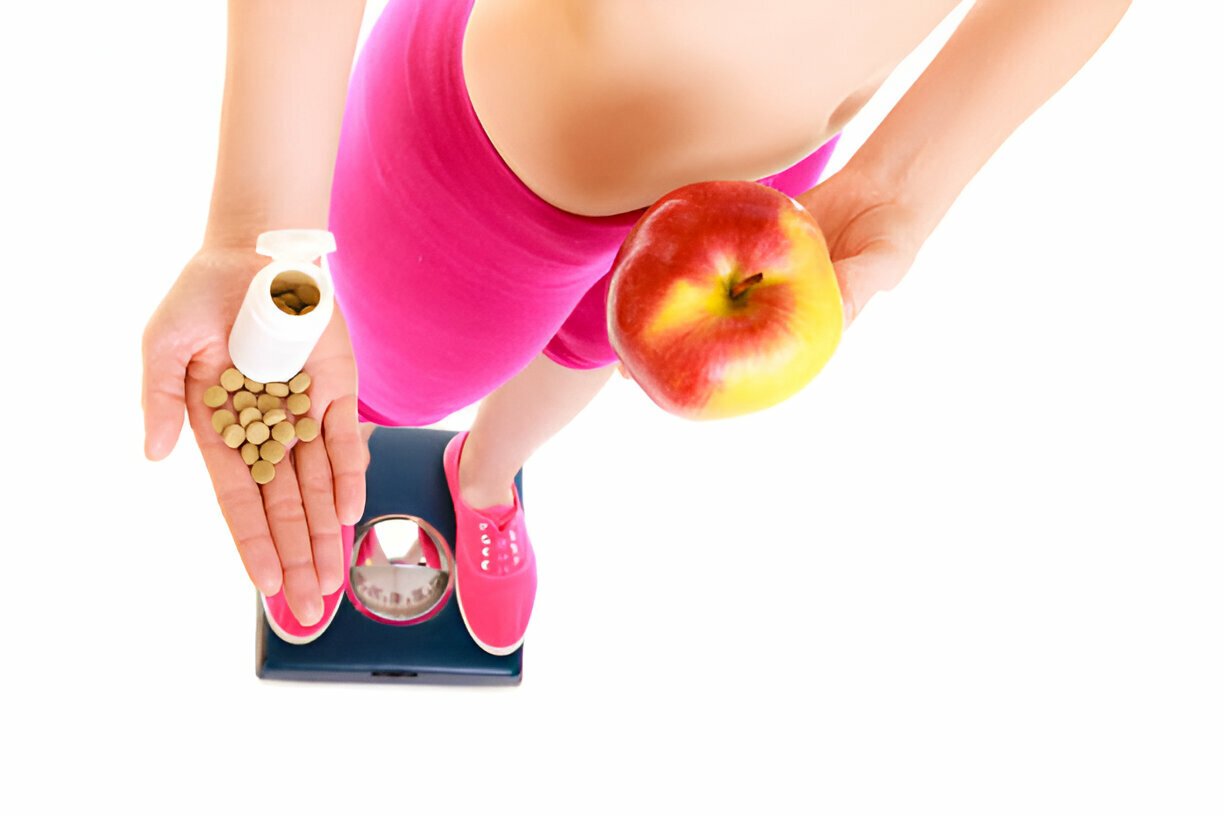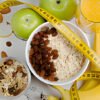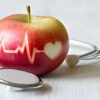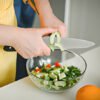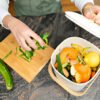If you want to breastfeed your baby and control your weight, think “healthy eating” rather than “dieting”. Provided you eat the recommended number of calories and (above all) eat a variety of healthy foods, you won’t gain weight during lactation, and you will probably shed some of your excess fat.
How Many Calories Do You Need When Breastfeeding?
Women’s bodies are typically very efficient at producing breast milk, so you don’t need to eat for two people! As a rough guide, increase your calorie-intake by about 500 calories over what you needed before you became pregnant. On average, this means that most nursing moms need to eat at least 2000 calories per day. (Note: You can obtain an extra 500 calories by eating a peanut butter sandwich and a glass of milk.)
Make It a Priority to Eat Regularly When Nursing
When you’re looking after a brand new baby, it’s not easy to find the time or energy to eat properly, especially if you’re not getting enough sleep. However, it’s vital for your and your baby’s health, that you eat regularly and healthily. So try to make eating a top priority. Some food tips when breastfeeding:
– Continue the healthy-eating approach you adopted when pregnant
– Plan meals in advance
– Keep them simple for quick and easy preparation
– Eat small meals more frequently
Is a Special Diet Necessary When You Breastfeed?
No. You don’t need to follow a special diet during lactation, provided you eat a variety of nutritious foods. That said, your doctor may advise you to continue taking a prenatal supplement while nursing, in order to rebuild iron levels which may have become depleted during pregnancy. Also, if you are worried that your diet is not as balanced as it should be, ask your doctor about taking a multinutrient supplement. But in general, provided you are eating sufficient calories from a variety of nutritious foods, your diet will be satisfactory.
Variety of Food is Essential
It’s important for all breastfeeding mothers to eat a variety of healthy foods. Why? Because only a variety of different foods gives you all the vitamins and minerals you and your baby need. A proper varied eating plan should include:
- Plenty of fresh fruit and vegetables (especially leafy green vegetables). Aim for five portions a day.
- Starchy foods such as bread, pasta, rice and potatoes for extra energy.
- Plenty of fiber from foods like: whole grain bread, beans, oats, frozen peas, All Bran, apples, pears, citrus fruits, mango, figs, and vegetables like corn, parsnips, Brussels sprouts. After childbirth, bowel action can be disrupted and constipation is particularly painful, but fiber helps with both of these.
- Protein from foods like: lean meat and chicken, fish (aim for two servings of fish per week, including one of oily fish), eggs, beans and lentils.
- Dairy foods like: milk, cheese and yogurt, for calcium and protein.
For more information about healthy eating, see Guide to a Healthy Diet, and Principles of Healthy Eating
Problem Foods
There are no foods that are guaranteed to cause problems for all infants, so unless your baby noticeably reacts within six hours every time you eat a certain food, there is no need to avoid any particular foods. That said, spicy or gassy foods may cause wind, while caffeine can cause irritation and difficulty sleeping.
For specialist informations about nutrition when breastfeeding, contact your physician, a certified lactation consultant (IBCLC), or a dietitian/nutritionist who specializes in perinatal nutrition.
How Much Do You Need to Drink When Breastfeeding?
As a rough guide, drink when you feel thirsty. During the first few days after delivery, you may feel extra thirsty and may need to drink more fluids. A useful test is to check the color of your urine. It should be a light-colored yellow. If it is a deep yellow, or dark and strong smelling, you are not drinking enough. Water, milk, unsweetened fruit juices and soup are all good choices. You may drink caffeinated beverages, but limit your intake to one or two 8oz servings per day, and be aware that caffeine can make your baby irritable, or have difficulty sleeping. It is best to drink mainly caffeine-free beverages when breastfeeding.
Breastfeeding For Vegetarian Mothers
The milk of vegetarians is typically no less nutritious than that of meat-eaters. However, following a healthy vegetarian diet is more difficult than one that permits animal foods, and typically requires a wider variety of foods. Thus vegans and even lacto-ovo vegetarians may need to take supplements of vitamin D, iron, and calcium during lactation. In addition, vegans need to ensure their intake of vitamin B12 is sufficient, by eating enough B12-fortified foods.
Do You Need to Give Up Alcohol When Breastfeeding?
Yes. It is best to avoid alcoholic beverages while breastfeeding. The occasional alcoholic drink may not cause a problem for your breast milk, provided it is drunk immediately after breastfeeding, but a no-alcohol diet is safest for your baby.
Breastfeeding For Diabetics
Diabetes is not incompatible with breastfeeding. But for optimum health – both for you and your baby – be guided by nutritional advice from your doctor.
Weight Gain After Breastfeeding
When lactation stops, you need to eat fewer calories otherwise you will gain weight. For optimum weight control after breastfeeding, it’s best to eat as regularly but choose smaller meals. Also, continue to follow the same principles of healthy eating as you did when breastfeeding.
For more information, see Diet For Optimum Health and Weight
More Information About Weight Management

